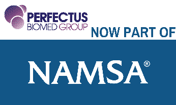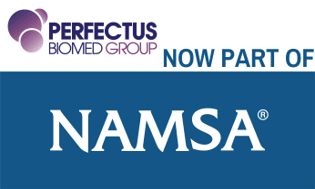CELL LINE AUTHENTICATION, ATCC ASN 0002-2021
STR PROFILING, MYCOPLASMA TESTING, PRIMER DESIGN
GLP COMPLIANT MOLECULAR TESTING
Cell Line Authentication, ATCC ASN 0002-2021, STR Profiling, Mycoplasma Testing, Primer Design: Supporting confidence in your cell lines.
We provide molecular support in addition to our typical culture-based studies, providing cell line authentication, pathway targeting and screening of samples for the presence of pathogenic viruses and bacteria.
Our Cell Line Quality Control package ensures confidence in your cell lines, with results reported in as little as 24 hours
- Cell line authentication (human STR profiling assays)
- Mycoplasma contamination detection/sterility (qPCR)
- Murine/human pathogen detection (qPCR)
Our Microorganism testing services include.
- Custom PCR testing/ Primer Design
- Species Identification
- Gene expression
If you would like further information on any of the below or if you would like to discuss in detail how we can support your work, please get in touch.
Cell Line Quality Control
Perfectus Biomed work to the ATCC ASN-0002-2021 standard, with the ability to test at 24 loci using Promega’s Geneprint 24 system to prevent misidentification of closely related cell lines. The 24 loci that will be tested include: TH01, TPOX, vWA, Amelogenin (for gender identification), CSF1PO, D16S539, D7S820, D13S317 and D5S818 and all 14 markers as outlined within ASN-0002 Revised 2021. These are the nine markers as outlined within ASN-0002-2021. We provide clients with a signed report that covers the basic requirement for grant/journal submissions. Reports will include the interpretation of the Short Tandem Repeat (STR) profile compared to the published standard profile, where required.
CELL LINE Authentication- ATCC ASN-0002-2021
Authentication of cell lines and other key biological materials enhances reproducibility of research findings through increased scientific rigor and transparency. Authentication plans are therefore required for many grant applications to ensure authenticity of the cell line throughout multiple timepoints during continuous use in projects.
During a project, cell line authentication is recommended when:
- A new cell line is established or acquired
- A new series of experiments have begun
- Cell lines are routinely passaged
- Inconsistent cell behavior or unexpected results are seen
- Passage number is limited as cell lines mutate over time
- You are preparing to publish
- Cell stocks are being frozen to verify purity
Best practice guidelines recommend cell line testing:
- Prior to submitting a paper for review or beginning a new grant
- To prevent cross-contamination
- If cells give erratic and unreproducible results
- If a change in morphology or growth characteristics are observed
- When creating a new cell line
- When receiving cells from a non-accredited laboratory/provider
- When creating cell stocks for storage
PATHOGEN DETECTION
Undetected contamination by pathogens invalidate work and can put your teams health and safety at risk. Regular testing is critical for continuous cell lines.
Pathogen detection testing is recommended:
- When creating a master cell bank or working cell bank
- Before beginning a new series of experiments
- When the cell line behaves abnormally
- Every two months that the cell culture is actively growing
- Prior to publication of experimental data
MYCOPLASMA TESTING
Mycoplasma can attain high densities within cell cultures with an absence of visible morphological changes. It has been estimated that anywhere between 10 and 85% of cell lines are infected by mycoplasma.
Our qPCR-based mycoplasma detection service can detect over 100 species of mycoplasma with results returned in as little as 1 – 2 days. Cell lines, supernatants or media can be tested using this method.
STERILITY TESTING
Cell lines can easily become contaminated particularly in labs and academic settings where cell culture hoods are shared across multiple departments. Once contamination takes place this can easily spread through multiple cell lines causing disruptions to project delivery and significant costs. We can take samples from frozen cultures and perform sterility testing to ensure complete confidence in your research.
Our sterility testing service involves plating cultures onto three media types recommended by BE EN 11737-1:2018 for detection of a range of fungi and aerobic and anaerobic bacteria.
MICROORGANISM TESTING
PRIMER DESIGN
Perfectus Biomed has a bank of primers for commonly used bacteria and viruses. Species not already included in our primer bank can be designed and validated in house for further testing by Perfectus Biomed or for customer use. Up to four primer sets can be multiplexed for use in one reaction. Primers can be designed to be species specific or strain specific provided that genetic sequences are available. The design process includes a bioinformatic check for the presence of secondary structures. Validation includes optimisation of reaction conditions and identification of the limit of detection.
SPECIES IDENTIFICATION
Bacterial species can be identified from isolated cultures provided by the client or single/mixed species cultured in our microbiology laboratory from samples provided. Samples can be separated and identified with a range of environmental and nutrient conditions and using conventional microbiology and 16s sequencing.
GENE EXPRESSION
Assessment of gene expression changes following a treatment using qPCR, this can be applied to microbes and cell lines. If necessary, Perfectus Biomed can also assist in identifying relevant genes to target and can design bespoke primers for assays.


